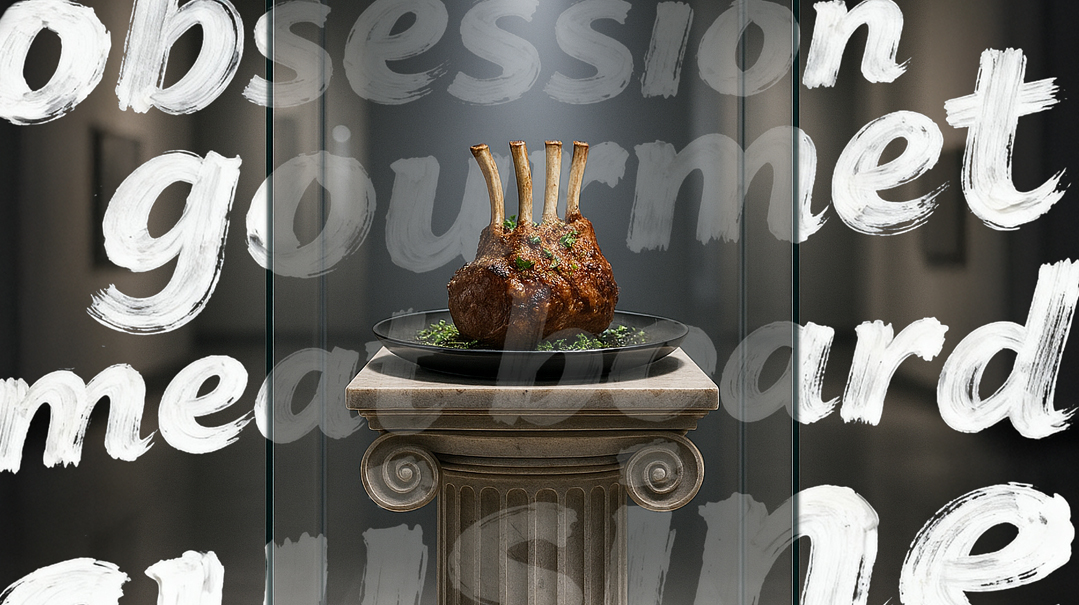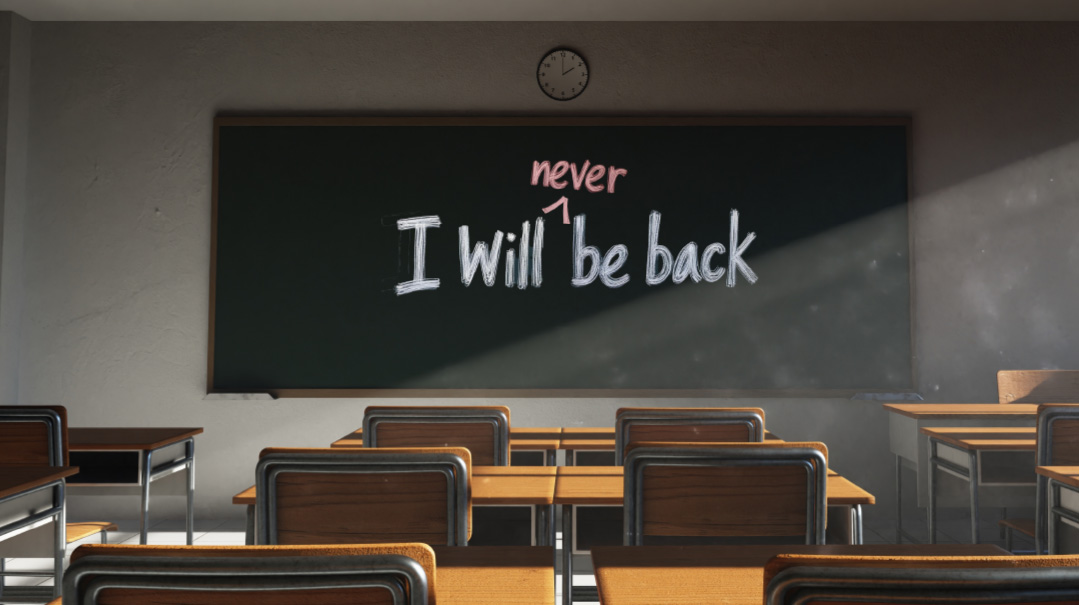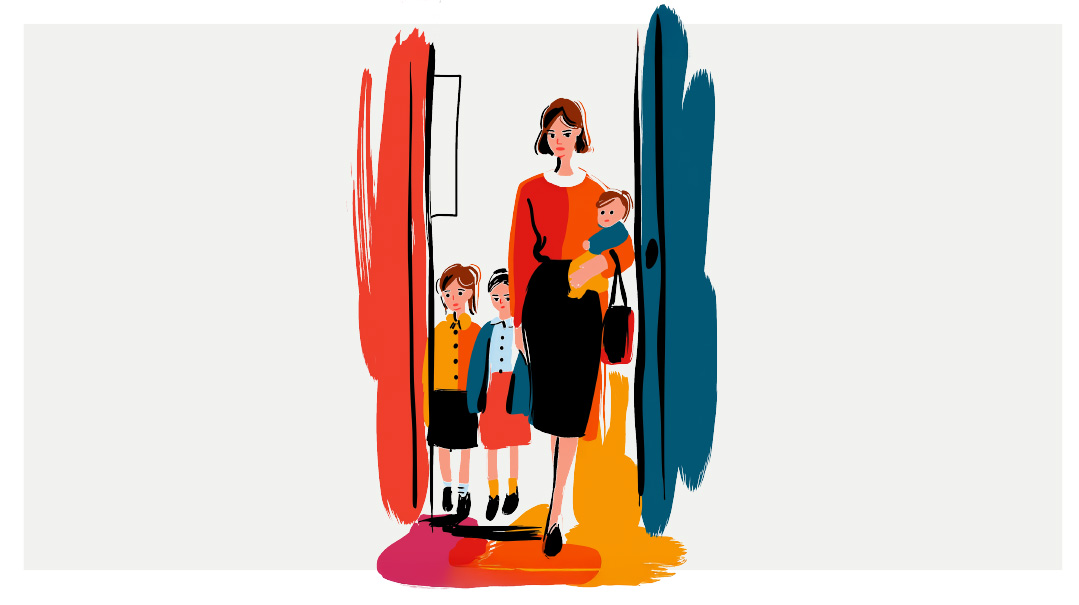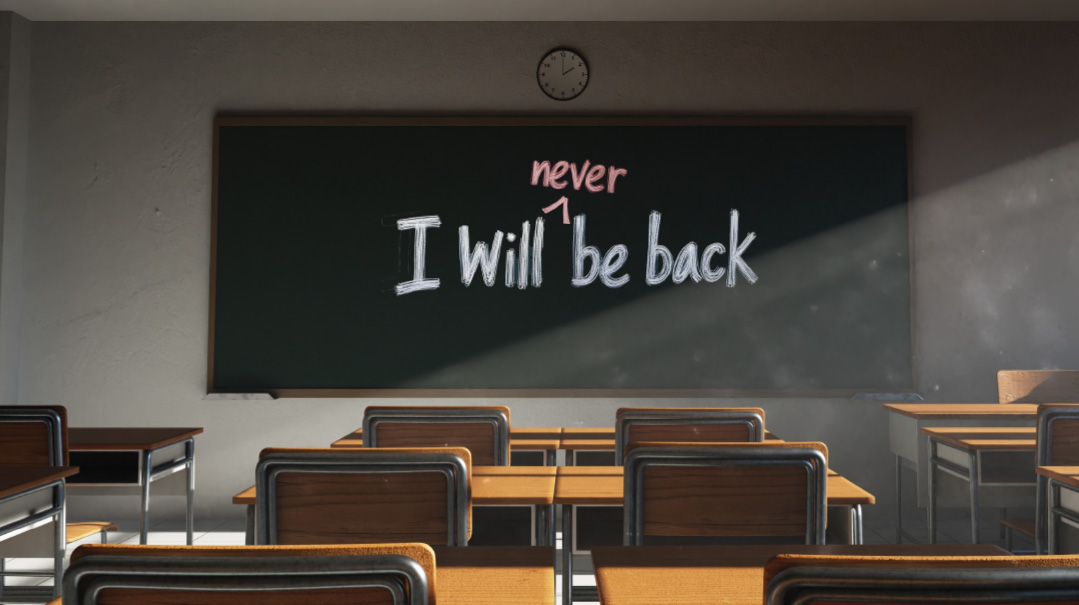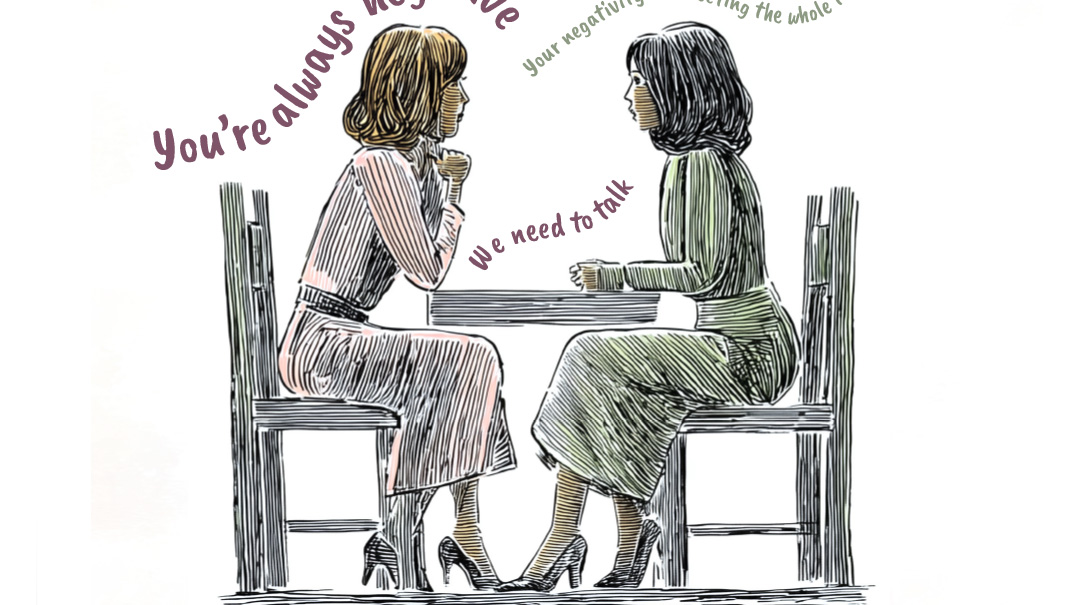The Gold Standard: the Conversation Continues

“They’ve never really been taught my generation’s lesson — that the riches of a kollel life come along with, maybe even demand, some form of material restraint”

Upgrade Everything
Brachi Silver
The issue of materialism isn’t only that people who can’t afford to are living outside their means, but that (and yes, this is a reflection of my reality and those around me) those who can afford to spend freely are doing that — upgrading every aspect of their existence, from basic needs to luxuries.
We used to be okay with any warm winter coat, but now only Moncler or Canada Goose will do. We used to have a Shabbos seudah with gefilte fish, eggs and liver, and cholent, but now it’s tuna tartare and gourmet herrings and charcuterie and jerky. Decades ago we would never have even considered doing this.
Why should it bother me if people are spending money they can afford to spend? Because we live in a tight-knit and close society, and everyone’s choices impact those around them. We’re all spending on the same narishkeit, so it’s not happening in a vacuum. It’s a trap I find myself falling into as well. And I wonder, as I buckle the strap of my six-year-old’s $159 Mary Janes for her — as yerei Shamayim, why don’t we spend according to our principles and not according to what we can afford? Just because I can afford to spend 700 plus dollars on Gucci sneakers doesn’t mean I should.
I can spend money on Amazon junk like the best of them, but with every purchase of cheap bubble waffle makers and polymer clay kits, I’m conditioning myself and my children to think that if we want something now, there’s nothing that stands in our way. And that’s not a value I want to impart to my children.
I know that when I think about what I’m spending and why, even if I can afford it, I tend to make better choices. Sometimes that may mean spending more money on better quality goods that last longer. Sometimes I may choose to spend money on something my friend might find frivolous, like dinner at a high-end restaurant with my husband to celebrate a milestone. Sometimes it means I say no to myself or my kids and deal with the fallout.
I have a sister in shidduchim, and she was telling me about her dream hair and makeup crew and what they charge (over $5,000 for four people). I couldn’t get over it. How can we normalize spending an objectively exorbitant amount of money on something that might make us happy, but will make things a little harder for the person next to us?
We Like Nice Things
Chana Biton
MY daughter and I are pretty similar.
We both like nice things. And we both married long-term learners.
By “liking nice things,” I mean we don’t just like an overall polished look where all the details — sheitel, dress, jewelry, shoes, handbag — have just the right amount of style, chic, and personality. I mean we have the type of eye that notices the way the warm undertone of the paint on the dining room wall complements the trim on the chairs. Or how the floral arrangements at a simchah perfectly contrast with the tablecloth liner — as well as the baalas simchah’s eyeshadow. Or that the strategically placed highlights on a neighbor’s new sheitel accentuate her cheekbones so much more effectively than her old wig.
There’s no curriculum for this type of perceptiveness, and we don’t make a conscious effort to learn these things. We definitely don’t waste time on social media studying the trends. But somehow, without any concerted effort or even intention, we manage to absorb which colors, silhouettes, home décor and party-planning looks are “right” this year.
Still, for all our similarities, my daughter and I are actually pretty different.
Yes, we both like nice things, and we both married long-term learners, but we come from different eras — and correspondingly different mindsets. I’m sure she struggles to understand mine. I know it takes real effort and empathy for me to understand hers.
The mindset I grew up with is this: the spiritual and material worlds are inversely related. Long-term learning means, by definition, a de-emphasis on spending, whether by simple laws of math or more elevated laws of propriety and focus. The kollel “look” is more restrained; the kollel home should be comfortable, maybe even elegant, but not luxurious; the kollel kids aren’t or maybe even must not be the trendsetters of the class; the kollel wife can certainly acknowledge the season’s new styles, but shouldn’t allow their swiftly changing rhythm to keep emptying her closet, then filling it with new stuff.
And I won’t talk about sheitels.
The mindset my daughter grew up with is different. From what I see, hear, and intuit, it’s more along these lines: If you’re a hard worker and a smart shopper, there’s no reason why you can’t have it all. Of course, your husband’s learning is your top priority, and your own spiritual development is vital — with shiurim, chaburos, kabbalos, and heartfelt tefillah a genuine focus — but being in kollel doesn’t mean you, your children, and your home shouldn’t be in style. High style.
I’m a good student, I always was, and I absorbed my era’s mentality well. I still like nice things, and when I riffle through the racks at a clothing store, my hands always gravitate to the better stuff. When I return from an upscale simchah, I can explain why the texture of the tablecloths was the perfect match for the centerpieces, or why the varying heights of the flower arrangements worked (or didn’t). My own Shabbos table gives me tremendous joy — I have an admitted weakness for fresh flowers and an eye for arranging them, so every week you can find Trader Joe’s best on my Shabbos table, in different colors, heights, and combinations.
But there’s still a barrier in my mind, in my life, between the world of “have it all” and my blessed position as the wife of a serious learner. Sometimes this annoys my children — why can’t we just buy that, or have that, or go there — and I’m not always sure myself whether I’m disguising deprivation as healthy restraint and crossing the line into martyr territory. Sometimes it’s still a struggle to isolate my needs from my wants, and positive indulgences from damaging ones. That’s why I make a mighty effort to show empathy and understanding for my daughter as she finds her own balance in a world with a very different mindset.
The way I see it, I chose this lifestyle. Kollel, certainly long-term learning, wasn’t a given when I grew up. Today, in contrast, most of our daughters aren’t making a conscious choice. Kollel is the natural endpoint; the river of their chinuch — the river they sailed along blithely from kindergarten through seminary — deposits them on its shores. This is the standard, the expectation.
When they sign up for a kollel lifestyle, we’re proud and happy that they’ve absorbed all those lessons along the way. But for the most part, they haven’t been shown other options. And, most importantly, they’ve never really been taught my generation’s lesson — that the riches of a kollel life come along with, maybe even demand, some form of material restraint.
So, imagine your daughter gets engaged to her long-term learner. She’s excited and idealistic and determined to support his spiritual endeavors as long as she possibly can, just as she was taught (and hopefully, just as she learned from your personal example). Oh, and also, she never made a conscious choice to live a life of restraint, and she really wants a beautiful, up-to-date sheitel, or This Year’s booties, or that monogrammed linen set. She’s the starry-eyed kallah, and you want to set her up with generosity and grace. Do you accommodate her desires?
Sometimes it’s a matter of budget. If you just don’t have the money for it, you at least have clarity. After all, if you really believe a kollel life has eternal value, you don’t have to be apologetic about what you can and can’t buy — your certainty will filter down to your children, and they’ll either understand and be proud, or understand and grumble, or understand and find the money some other way to get what they want.
But sometimes it’s a matter of values, not money per se. Sometimes your budget can be wiggled and jiggled to allow for that sheitel that you’d never buy for yourself. And you can wiggle and jiggle your personal standards of how many manicures or weekday outfits or restaurant dinners a kollel wife really needs. After all, she’s young and excited — and maybe even a little scared at this huge commitment she’s taking on.
So, you can wiggle and jiggle all that. But can you wiggle and jiggle your mentality, your paradigm, your foundational understanding that material and spiritual are inversely related, that here in This World you can’t have it all, that a focus on one comes at the inevitable expense of the other?
That is the hardest question of all. Because at heart, you know what it means to like nice things — you like them, too.
Knowing My Worth
A.B., Jerusalem
Elisheva Appel’s article was thought provoking in the best way. I nodded along, laughing at the familiar examples, shaking my head at the ridiculousness of some of our standards. But I did want to add one thought.
Privileged to live in Eretz Yisrael for the past ten years, it took a few years for me to un-Americanize myself. Weekly manicures are now a thing of the past, as are iced coffees and spur-of-the-moment shopping sprees. It’s not even about money, it’s about mindset.
I’ve just returned from a lengthy trip to the USA, where I spent time in wonderful Jewish havens such as Lakewood, Monsey, and Brooklyn. There I witnessed what I call the “manicure and iced coffee” society, where almost every woman, no matter her financial status, age, or stage, considers herself deserving of a regular Starbucks and a ten-dollar manicure.
The conversations at the salon and coffee shop aren’t deep; they’re about French tips and carpool and sheitels. What struck me was that all these women view each other as adult women, moms, and wives deserving of what they consider to be a necessary luxury.
When I returned to the lovely Holy Land at long last, I wanted to bring some of that comfort-with-necessary-luxury with me. Here it’s totally acceptable to walk around in seminary-style shmattehs, tichels and snoods, with bags under our eyes. We don’t get manicures and iced coffees because we don’t have cars and we’re so busy, we don’t have time to schlep out on a bus for things like that. But as a result, I think we somehome view ourselves as being less....
I’m 30 years old, I’m a mom of four, kein ayin hara, and I do think I should be schlepping out somewhere to make myself feel good. Instead, I apologize for nice things, rolling my eyes if I’m caught in a restaurant, and mumble something about hubby wanting burgers even though there’s perfectly good Shabbos leftovers in the fridge….
It’s not about self-care or even self-respect. It’s about knowing our worth as Jewish mothers and treating ourselves as worthy.
Cheap Compliments
Rina F., Brooklyn
I was recently at a simchah in a wealthy, Modern Orthodox community. At the end of the simchah, something really struck me: There had been no talk about clothing whatsoever. Instead of greeting someone with a familiar, “Hello, oh wow, you look great, I like your______,” it was just, “Hi, wow, great to see you, so great to spend time together.”
It was striking. The people at the simchah were effectively saying that clothing is insignificant. It’s just clothing. The person standing in front of you is so much more than her garments. It felt nerdy and petty to mention someone’s clothes.
I remember a conversation I once had with a colleague. Her children were a lot older than mine and very good looking. She told me that when they get dressed for Shabbos, she makes a point to say to them, “Wow, you look so Shabbosdig” instead of saying, “You look so handsome” or “You look so pretty.” Her point is to take the focus away from how we look and what we wear, and place it instead on what we really want to highlight, on the values that are important to us.
As my kids get bigger, it’s important to me that they don’t make such a big deal about the clothing they wear, about brands, the current styles, and the latest colors. To achieve that, I try to not discuss clothing in my house AT ALL. I tell my kids that they have a shining, pretty face, that they’re beautiful inside and out. I tell them they look bakovadig, or like my work friend says, “Shabbosdig.” I try to shop without them, so they don’t see me spending time and energy on their clothing. I want to highlight who they are, their talents, their middos, their inner beauty.
I try not to make a big deal about my own clothing, either. If I’m about to go somewhere, and I’m wearing something I don’t love so much, I think five times before I go back to my room to change. If I did, the message I’d be sending my kids is that I’m defined by what I’m wearing and therefore it’s super important that I get it just right. I want them to know that it’s inconsequential.
One of my kids is very aesthetic. She genuinely has good taste, and she’s only seven years old! I understand and relate to that; she takes after me. I do think there’s a certain artistic talent in picking out nice clothes, and I don’t want to squelch that, but at the same time, her sense for aesthetics is a rabbit hole that’s becoming increasingly deeper and darker, and I have to make an effort to find other things to bring it out.
Complimenting someone’s clothing is a cheap and easy way to compliment them. We put a lot of focus on fitting into specific social groups, following the unwritten etiquette of exactly what (down to the brand!) to wear and when, having the right “items” each season. It’s important to align ourselves with people with a similar outlook on life, who share the same aspirations for themselves and their families. But when did aligning ourselves mean that we actually have to match? We’d all feel so liberated if we could fit in without the stress of acquiring the perfect checklist of items each season.
Making change in this area is relatively easy. All we have to do is stop choosing to use the cheapest compliment.
Give Them Hashem
Baila Vorhand
The way I see it, if we want to tackle our community’s growing obsession with having “the right stuff,” we need to tackle the root of it.
What causes a person to be obsessed with materialism? Inner emptiness — and the only way to fill that hole is with the ruchniyus that will feed us — not the ruchniyus that satisfied our mothers, grandmothers, or even ourselves of five years ago.
We grow and change and evolve. Today, there is a tremendous hunger for something, something, something... If it’s not satisfied, we’ll try to make ourselves happy with gashmiyus, but we never will.
What is that “something” that we are starving for? Amos Hanavi predicted it. We are not hungry for bread, not thirsty for water, but to hear the word of Hashem. In our period right before Mashiach, we need deep Torah that draws from the sod, the secret layer of Torah, in order to be happy and satisfied.
When I put my parshah shiurim on Inspire by Wire hotline, I was unsure if women would be interested. The ideas don’t help anyone’s shalom bayis, or chinuch, or tell them what and how to do anything. They are downright esoteric — it’s pure Torah; that’s it. I was expecting a couple of dozen listeners per week.
Instead, 3,000 women tuned in to the first class and when I asked if I should continue with them, so many called in to beg — please, please do, don’t lower the level, we are starving, burning with thirst for this.
As educators and parents, it is our responsibility to nourish our children’s neshamos with the Torah that will satisfy them, with access to people who can turn on their hearts in ruchniyus, show them what real tefillah is — i.e., the real deal.
Give them Hashem.
Enough Judging
Rachel Collins, Kew Gardens, NY
MS. Appel’s line about svelte mannequins who are hollow inside reminded me of an experience I had a few years ago.
I was sitting at a dinner next to a woman who was wearing a gorgeous sheitel, an extremely beautiful dress, stunning shoes, and a full face of makeup in the trendiest colors. She was svelte and looked like she stepped out of a magazine. As we talked throughout the evening she told me that she loved fashion and home decorating so much that she writes her own blog about style and shopping.
Over the course of our conversation, I learned that she’d just finished recovering from donating one of her kidneys to a complete stranger.
True story. Let’s stop writing articles encouraging judgment of each other’s halachically permissible comforts and joys. Instead let’s try to write and read positive words that inspire and unite us.
(Originally featured in Family First, Issue 820)
Oops! We could not locate your form.


